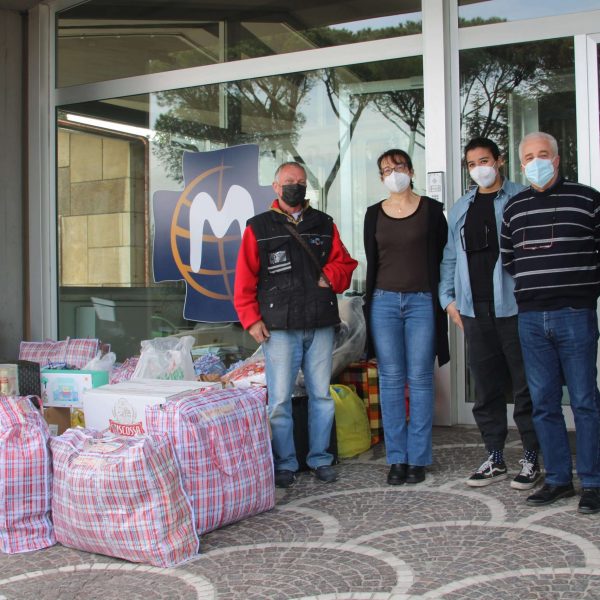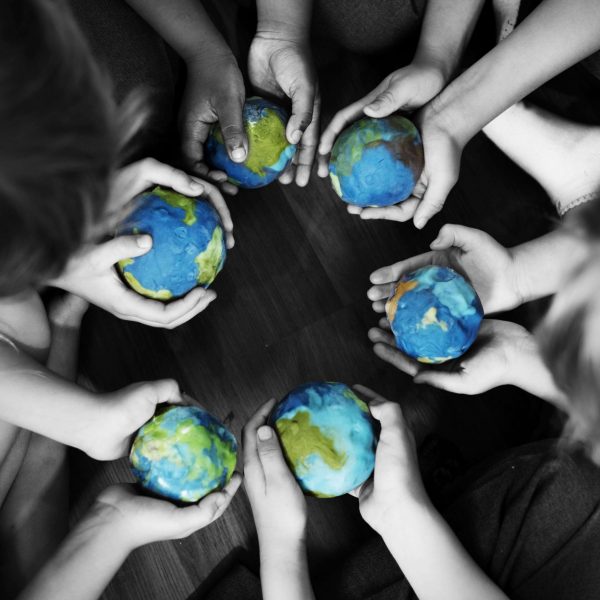Children’s Rights Day, November 20, took place this year shortly after the conclusion of the Climate Conference, which, despite some achievements, still offered too little to guarantee the next generation a future on a liveable planet.
The Climate Conference also seems to have disregarded the UN Convention on the Rights of the Child, which states that in all states the needs and requirements of children must be considered in decision-making.
Among the measures mentioned by experts is the inclusion of climate change education in school curricula. According to many studies, education reduces vulnerability to climate disasters because informed communities are better prepared and, consequently, able to respond. But offering educational programmes is not enough if 37.5 million children cannot go to school each year due to climate-related weather events (TheirWorld,2018) and one billion are currently at very high risk of negative impacts from climate crises (UNICEF, 2021).
The same problems that are damaging the planet in the long term are now damaging the lives of children.
Children in Colombia and Mexico are among those living the fewest number of healthy years (3.7 per 1,000 under 15 years) due to air pollution. Those in the Czech Republic, Poland, Belgium, Israel and the Netherlands (1 in 12) live more than others in areas polluted by pesticides. In the richest countries, 1 in 25 children are at risk of being exposed to lead poisoning, which is responsible for more deaths than malaria, war and terrorism. Lead poisoning affects children’s body functions much more than adults because their bodies are still developing. Lead poisoning also has negative effects on attention span and memory. Pesticide pollution is, according to many studies, the cause of leukaemia and developmental delays. Meat from intensive livestock farms with high antibiotic use has effects on the immune, endocrine and reproductive systems. Noise pollution – highest in Malta, the Netherlands and Portugal – produces stress, reduced cognitive functions and low school performance in children. In addition, electromagnetic pollution and the use of digital devices in the earliest years of age creates language delays, just as early keyboarding in writing creates delays in learning to write.
The lack of green spaces, listed by the World Health Organisation as one of the social determinants of health and life satisfaction, is damaging the lives of children.
Many children are alienated from play and nature which results in a lack of development of motor skills as well as severe emotion and learning difficulties. These difficulties are mainly due to environmental situations that hinder children’s development. (Daniele Novara).
In poorer countries, children are doubly victims of environmental damage because they are more exposed to natural disasters, lack of resources for nutrition and access to clean water, and breathe toxic air both outside and inside their homes.
In all of this, we, as adults, are absent as parents of the new generations. We continue in our race to produce food through disproportionate farming, fishing and animal use. According to research, it is precisely in these sectors that human beings are the most exploited and the number of suicides among farmers and breeders is high. What can this way of treating life tell our children? There are political elites who do not want interference in their own system of values and traditions, but then sign contracts with foreign companies that will cause environmental damage to their children’s health for decades. Others believe that in order to defend the new generations, it is more important to invest in the purchase of armaments, but it is as if they put their own soldiers to defend the wrong front. The new generations will not be safe from war if the fight is for raw materials and energy, in the absence of a different development policy and choices for renewable energy that everyone can access. Economic activities will be overwhelmed by natural disasters and consumers increasingly ill. Environmental impacts do not respect national borders.
Children need healthy and safe environments in which to grow up. We adults at all levels, from parents to politicians, must change course. International cooperation is necessary to find global solutions, but let us not wait for others to make decisions to walk towards a different way of life.
From this Christmas, at this end of the year, let us start giving priority again, as all other living beings do, to the next generation.
“All things are connected like blood unites a family. We have not spun the web of life, we are only a thread in it.” (Laurentino Fontes, indigenous of northern Brazil, Mawako Project, Synod for the Amazon)
Sources: UNICEF Innocenti Report Card 17 – Places and Spaces, Environment and Child Welfare, 2022



